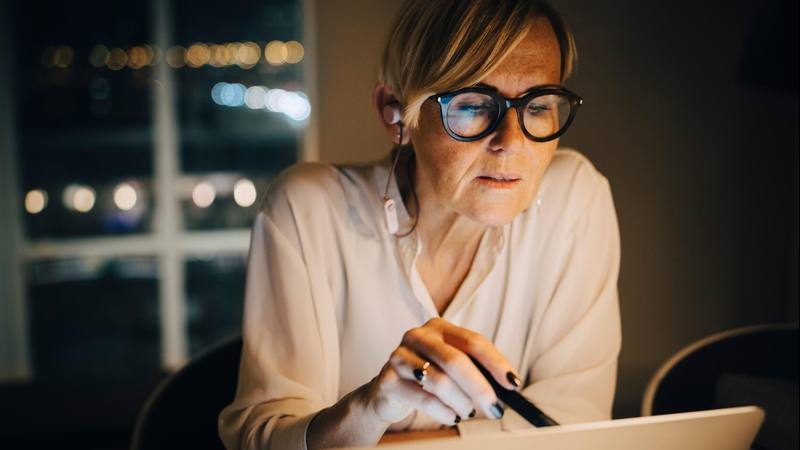
Sitting behind a computer screen all day can strain your eyes, but do glasses that claim to block blue light really help?
Dr. Muriel Schornack, a Mayo Clinic optometrist, says the macula is the area of the retina in your eye that is responsible for processing your clear central vision. The macula can be sensitive to blue light, which is a part of the visible light spectrum and is emitted from electronic devices such as cellphones, computer monitors and TVs. But most blue light that people are exposed to comes from the sun.
"There is a theory that if you are exposed to high levels of blue light, the macula could be damaged," says Dr. Schornack. "The second theory is that blue light tends to be excitatory for the central nervous system. So if you are exposed to blue light immediately before you try to go to sleep, your central nervous system has just been told that it should wake up by that blue light."
Watch: Dr. Muriel Schornack discusses glasses that block blue light.
Journalists: Broadcast-quality sound bites with Dr. Schornack are available in the downloads at the end of the post. Please courtesy: "Muriel Schornack, O.D./Optometry/Mayo Clinic."
A recent study on eyeglasses that filter out blue light did not find any evidence to support those theories. Dr. Schornack says some people may feel more comfortable wearing glasses that block blue light, but she doesn't actively recommend them to her patients.
"They may be very useful for some people. And I'm certainly not decrying their use in folks who find them to be helpful," says Dr. Schornack. "But I would also assure people that, as of yet, there is not strong evidence that blue light-filtering glasses are necessary to preserve macular health, nor do they have a significant effect on your circadian rhythm or sleep-wake cycles."
____________________________________________
For the safety of its patients, staff and visitors, Mayo Clinic has strict masking policies in place. Anyone shown without a mask was recorded prior to COVID-19 or recorded in an area not designated for patient care, where social distancing and other safety protocols were followed.
Related Articles







